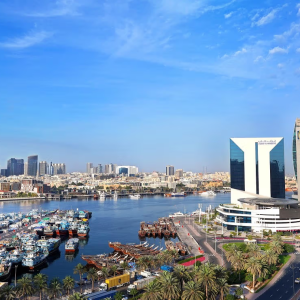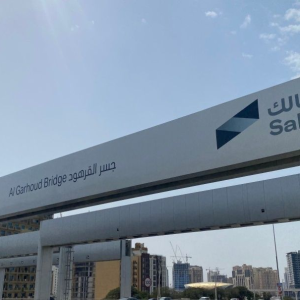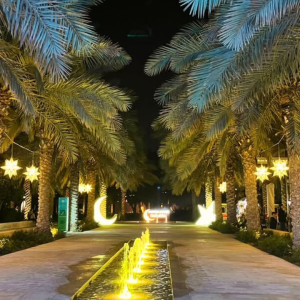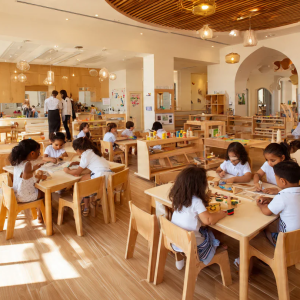Dubai’s hospitality industry has recently made waves with its commitment to absorb the costs of the reinstated 30% alcohol sales tax, ensuring that residents and tourists can continue to enjoy their experiences without paying more. The decision comes as the emirate prepares to reintroduce the tax on January 1, 2025, after a two-year suspension aimed at boosting tourism.
A Two-Year Relief Ends
In January 2023, Dubai suspended the 30% tax on alcohol sales and waived personal alcohol license fees. This bold move was part of a larger strategy to enhance Dubai’s reputation as a leading global tourism and hospitality destination. The suspension, originally set for one year, was extended through 2024, allowing businesses and consumers alike to enjoy lower costs.
As 2025 approaches, the Dubai Municipality has confirmed that the tax will be reinstated. Businesses were notified well in advance, giving them the opportunity to prepare their pricing strategies. Despite the expected challenges, the industry has responded with determination and a clear focus on customer satisfaction.

Businesses Absorb the Cost
Rather than passing the additional tax burden onto their customers, many of Dubai’s bars, restaurants, and retailers have chosen to absorb the cost themselves. This decision reflects a collective commitment to preserving Dubai’s appeal as an affordable luxury destination.
For businesses, the choice to shoulder the tax is not merely an act of goodwill; it’s a calculated move to maintain competitiveness. By keeping alcohol prices stable, establishments hope to retain loyal customers and attract new ones.

A manager at a popular Dubai restaurant explained, “Our guests expect a certain standard of experience when they visit us. Absorbing the tax ensures we maintain their trust and continue to provide value.”

Impact on Consumers
The announcement has been met with relief and appreciation from both residents and visitors. Alcohol prices in Dubai have often been a topic of discussion due to their higher-than-average rates compared to other global destinations. The decision to keep prices steady, despite the tax, reinforces Dubai’s commitment to offering a world-class hospitality experience.
For consumers, this stability means they can continue to enjoy dining and entertainment without worrying about increased costs. Whether it’s a casual outing with friends or a grand celebration, the consistent pricing is expected to encourage more frequent visits to bars and restaurants across the city.
Why This Matters
The decision by businesses to absorb the tax demonstrates the resilience and adaptability of Dubai’s hospitality sector. The emirate is home to a diverse range of residents and a constant influx of tourists, making affordability a key factor in sustaining its global reputation. By keeping alcohol prices unchanged, the industry aims to strike a balance between maintaining profitability and delivering exceptional customer experiences.
This move also highlights the competitive nature of Dubai’s hospitality market. With numerous options for dining and entertainment, businesses recognize the importance of standing out by offering value-added benefits like stable pricing.
Strategic Business Moves
Behind this decision lies a strategic vision that benefits both businesses and consumers. Absorbing the cost of the tax is seen as an investment in long-term customer relationships. Establishments are confident that this approach will not only preserve their existing clientele but also attract a new wave of visitors who are drawn to Dubai’s affordability and luxury.
For high-end venues, the decision aligns with their brand image of offering seamless and premium experiences. For mid-tier establishments, it’s an opportunity to compete effectively and establish a loyal customer base.
A Unified Effort
The hospitality sector’s unified approach to handling the reinstated tax reflects the strength and cooperation within the industry. Despite the challenges posed by the tax, the decision to absorb the cost shows a shared commitment to sustaining Dubai’s image as a destination that prioritizes its guests.
This collaborative effort extends beyond bars and restaurants. Retailers and distributors have also joined the initiative, ensuring that alcohol prices remain consistent across the board. Such cooperation strengthens the industry and sets a benchmark for customer-focused practices.

Future Prospects
The decision to absorb the tax positions Dubai’s hospitality sector for continued growth. By maintaining competitive pricing, businesses are likely to see an increase in footfall, higher customer retention rates, and enhanced brand loyalty. Moreover, this move sets a positive precedent for handling future challenges in a way that prioritizes consumer satisfaction.
As the emirate moves forward, the hospitality sector’s proactive measures signal a promising future. By focusing on value, quality, and customer experience, Dubai continues to raise the bar as a global leader in tourism and entertainment.
Conclusion
Dubai’s businesses have turned a potential challenge into an opportunity to strengthen their relationship with customers. Their decision to absorb the 30% alcohol sales tax reinstated for 2025 showcases their dedication to maintaining Dubai’s allure as a world-class destination.
Through strategic planning and a customer-first approach, the emirate’s hospitality industry demonstrates resilience, adaptability, and a commitment to excellence. This move not only preserves affordability but also reinforces Dubai’s reputation as a city that puts people at the heart of its progress.
For more information on how Dubai continues to evolve as a global tourism destination, visit caterermiddleeast.com.













